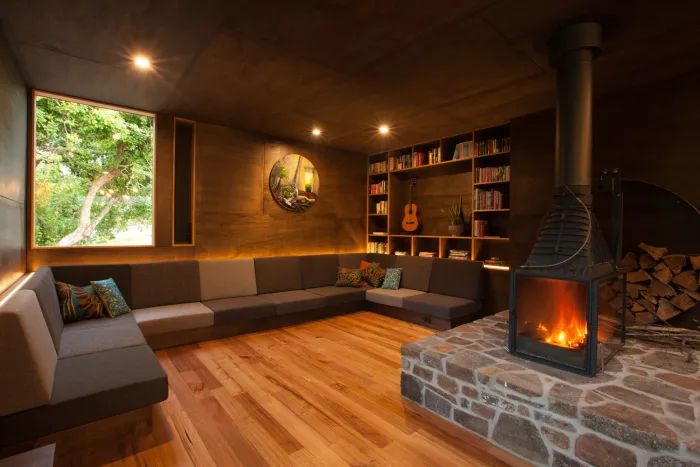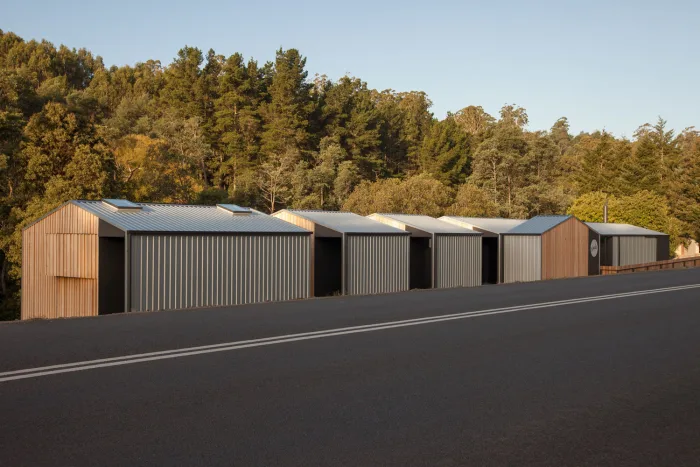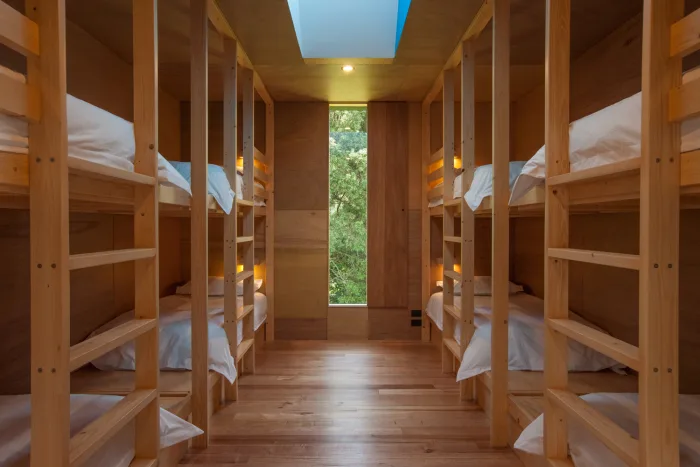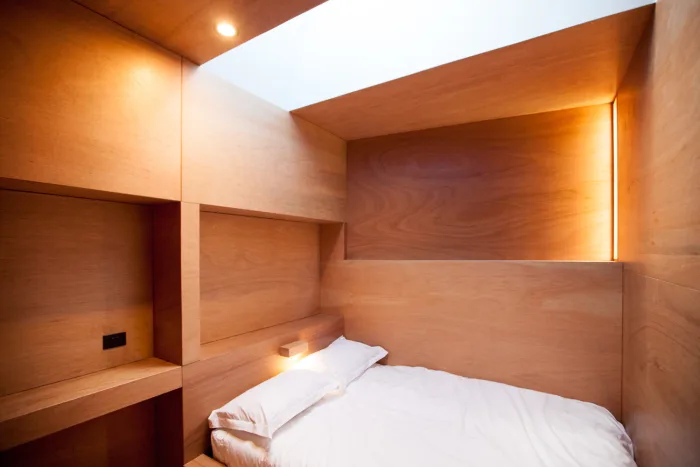Enjoy this recently published article about the architecture and energy efficiency of the Dales of Derby by inhabitat.com
Australia’s new mountain bike trails in northeast Tasmania are now more accessible than ever thanks to Dales of Derby, a contemporary, purpose-built group housing complex that is the perfect base for adventure. Local architecture and design studio Philip M Dingemanse designed the building, which won the 2019 Barry McNeill Award for Sustainable Architecture with its energy-efficient and low-maintenance features.
A former tin-mining center, the tiny Australian town of Derby was transformed in 2015 with the opening of Blue Derby, a network of mountain bike trails that traverses some of the island’s most stunning rainforest landscapes. Tapped to design lodgings to accommodate large groups of mountain bike enthusiasts, Philip M Dingemanse created a project that would double as an introductory building to the small village of Derby. Drawing inspiration from the town’s mining history, the architects created a simple gabled form and clad the exterior with Australian vernacular corrugated metal and timber in a nod to utilitarian tin miner homes. The architects also split the gabled building into seven pieces, with four sections pulled apart, to bring the outdoors in, while the interiors are lined with wood for a warm and inviting atmosphere.
Built to sleep a large group of up to 24 people, Dales of Derby includes bunk beds that accommodate 16 people as well as four rooms with queen-sized beds that are accessed via a red vaulted foyer inspired by a mining tunnel. At the heart of the building is a large common area with a wood heater and a full kitchen with a dining area oriented toward the forest. To reduce the project’s energy demands, the architects installed solar hot water heaters and followed passive design strategies for optimal solar orientation and thermal control.
“The built form is a singular functional object separated into pieces and strung out across the hill between road and river.” “Gaps become significant framing moments of eucalypt forest while nighttime gable lighting castes a permanent golden hue to graying timber walls; a memory of the raw timber cut, glowing on the outskirts of the township.”
To read the original publication see here.



